How the campus of the future will develop
ETH Zurich is developing its campus of the future at Hönggerberg – today, the city council of Zurich set another milestone in the development of an urban campus for teaching, research and exchange.
The ETH campus of the future is an urban campus. It combines rooms for study, research and work with leisure and meeting areas. It is open to ETH members, guests and visitors. The campus will offer facilities for sport, recreation, families and accommodation, as well as innovative educational facilities, state-of-the-art research technology and exchanges between science, business and society.
According to the masterplan “ETH Campus Hönggerberg 2040”, the look and feel of the campus will be even more urban than today with modern and historic buildings, public gardens and squares, and lively streets with cafés, shops, events and exhibitions. A central boulevard will concentrate the main traffic flows and create more space for pedestrians. The campus will be surrounded by the Hönggerbergring with a tree-lined avenue marking the border of the surrounding agricultural and recreational areas, which will remain.
Urban qualities through infill development
Things were different when ETH first arrived at Hönggerberg. Although the campus idea had already inspired the plans of the 1950s and 1960s, “ETH Hönggerberg” initially remained an outpost with barely any social facilities or cultural offerings beyond education, basic research and catering. This changed after the turn of the millennium: from 2003, the Hönggerberg campus became a “district for thought culture” that sustainably connects science, business and the public. The basis for this was the “Science City” masterplan (2005) and the special building regulations of the city of Zurich (2007).
Recreational and family facilities, such as the Sport Center (2009), student apartments (2016) and crèches, have since been created. Retail and catering services have been expanded and public events have been introduced that make the campus come alive, including the Treffpunkt Science City series (since 2006), exhibitions, visitor tours and Active Sundays, a sport and exercise event for children (since 2015).
Space for scientific innovations
A hallmark of the new masterplan “ETH Campus Hönggerberg 2040” is that it does not reinvent the campus of the future, but rather condenses the development so far into a coherent, urban whole, as praised by the architecture magazine Hochparterre. Ulrich Weidmann, ETH Vice President for Infrastructure, says: “The campus at Hönggerberg is an icon and not a single building.” The aims of the masterplan are based on the revised special building regulations that the Zurich City Executive Council, the “Stadtrat”, has transferred to the Municipal Council, the “Gemeinderat”, today, since the campus development will soon reach the limits of the current regulations (see box).
Building development is prompted by the space requirements for education, research and knowledge transfer, and the goal of creating an attractive environment on campus that attracts top researchers and talents from all over the world. The space requirement was driven by new research areas that were barely foreseeable before 2000 – for example, personalised medicine, sustainable building and digital fabrication. This is reflected in construction activity from 2010: during this phase, ETH built the Molecular Health Science Platform laboratory building (2012), the research laboratories for sustainable and digital construction, the House of Natural Resources (2015) and the Arch_Tech_Lab (2016).
Development is ongoing: digitisation and artificial intelligence are changing everyday research and work processes. ETH researchers are also working on the fundamentals of quantum computers. Accordingly, a physics building and a new scientific data centre are among the next buildings planned.
The value of green space
The masterplan and special building regulations focus specifically on spatial use: the planned high-rise buildings, for example, should be on the central piazza and the boulevard, i.e. next to the main pedestrian flows. The spatial concentration of the buildings means that the green spaces and parks in particular can be preserved and upgraded (e.g. the Flora Ruchat Roncati garden). A third park will be built at a vacant site in the south-western section of the campus. In addition to the relaxation factor of green spaces, the planning principles for campus development also include matters such as barrier-free movement, sustainability, biodiversity, environmental compatibility and climate warming in the city.
Planning is carried out in close collaboration between ETH, the canton and the city of Zurich, and in consultation with the neighbourhoods. In order to bolster bus services, ETH is working with the Zurich transport company VBZ and the Zurich transport association ZVV. In 2019, the frequency of the much-used bus line 80 was increased and in November 2019, VBZ began the project planning work for the external page electrification of lines 69 and 80. The aim is for the campus of the future to be driven by electric double-articulated buses, thus massively increasing capacity.
Impressions of the Hönggerberg
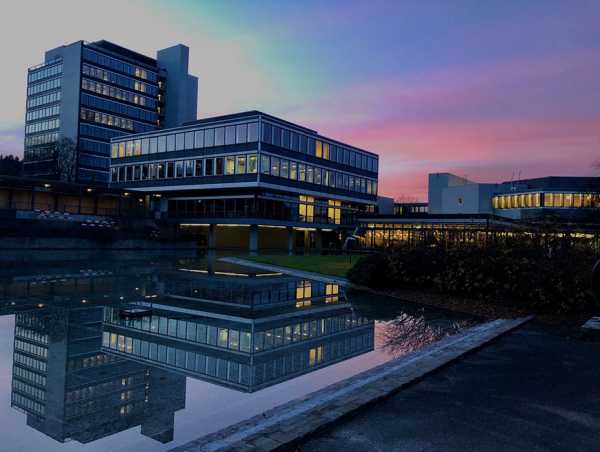
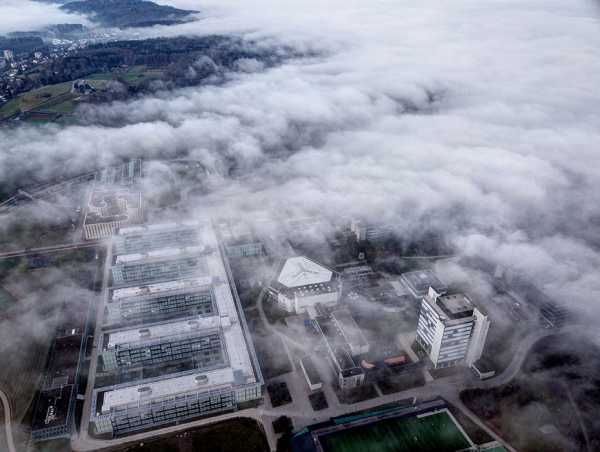
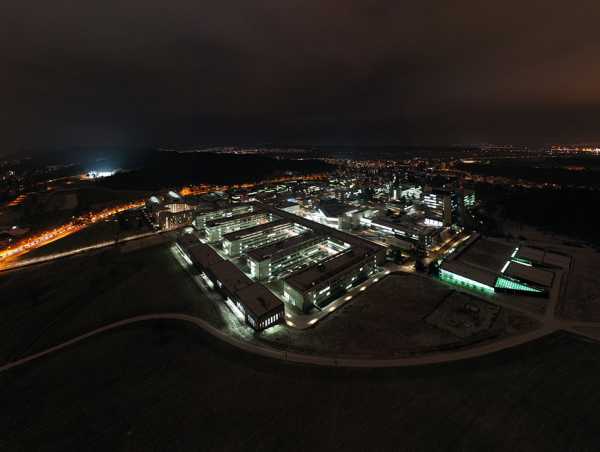
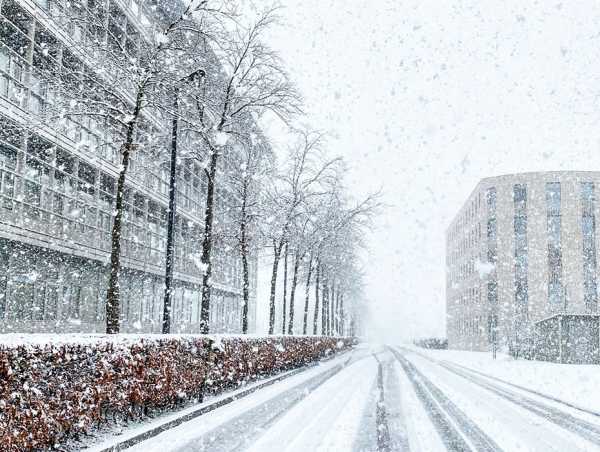
The buildings and atmosphere at the Hönggerberg campus are a popular subject on ETH Zurich’s Instagram account of which this selection of photos is inspired external page (instagram.com/ethzurich).
Planning principles for the further development of the Hönggerberg campus
The Zurich City Executive Council today approved the new special building regulations for ETH Campus Hönggerberg 2040 and a partial revision of the building and zone regulations (BZO), and transferred the bill to the Municipal Council. These form the binding planning law requirements for the further development of the Hönggerberg campus in line with the 2040 masterplan. At the cantonal level, the key parameters of the masterplan were laid down in the cantonal structure plan by the Cantonal Parliament of Zurich in late October 2019.
external page Press releases Building Department City of Zurich (in German)
Tours and exhibitions at the Hönggerberg campus
Note: Due to the extraordinary situation, there will be no guided tours of ETH Zurich until the end of May.
Tours:
- 2 June «ETH and its architecture».
- 18 August “Building for Science”
More information and registration at www.tours.ethz.ch or “Getting to know the campus”.
Related articles
- chevron_right Welcome to the future (ETH News, 07.01.2020)
- chevron_right Buzzing with life? (ETH News, 30.07.2019)
- chevron_right Pathway to Campus Hönggerberg 2040 (ETH News, 30.05.2018)
- chevron_right ETH can densify at Hönggerberg (Press release, 14.12.2016)
- chevron_right A district for thought culture "Science City" – a Vision (ETH Life, 13.11.2003)
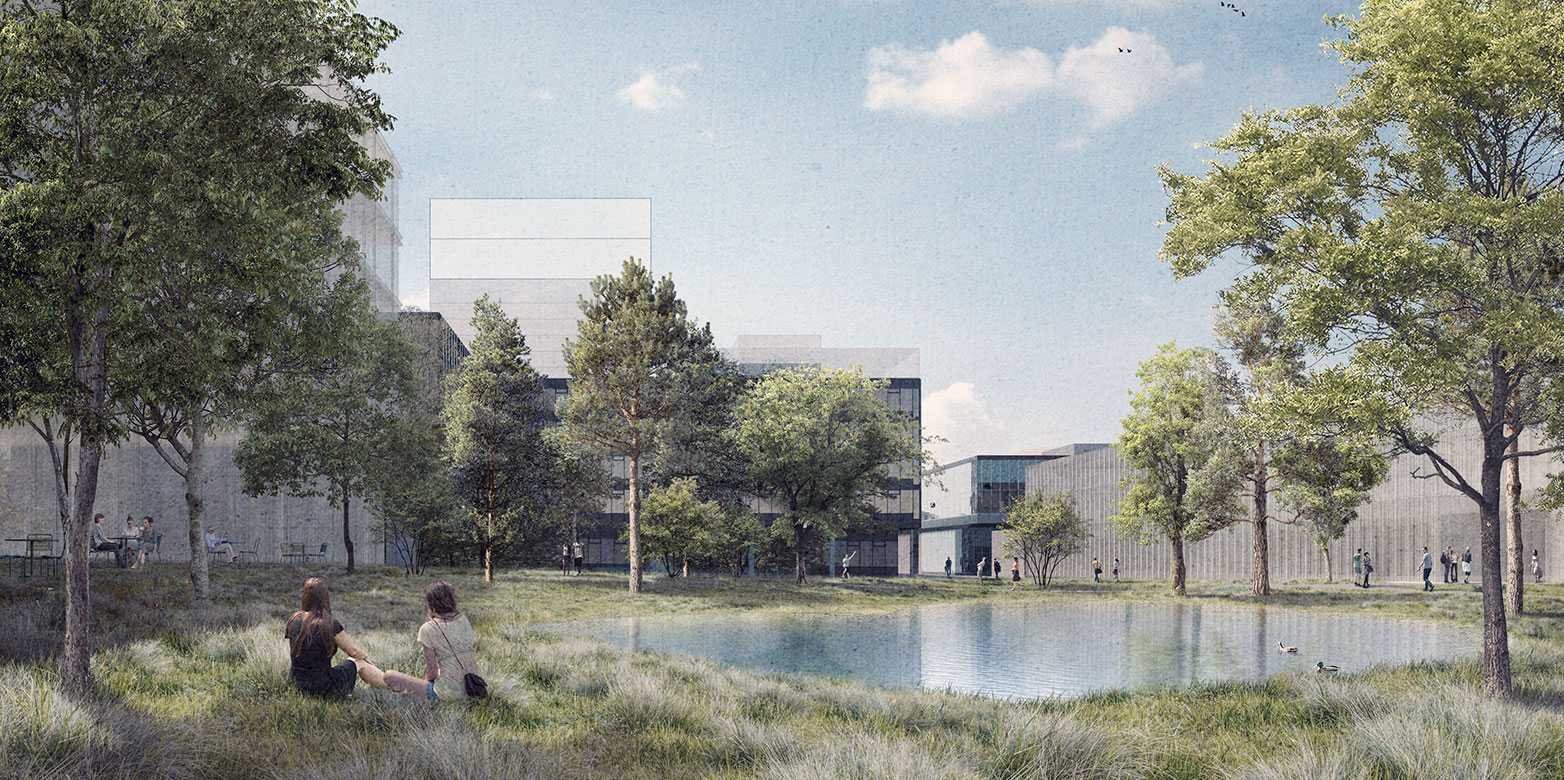
Comments
No comments yet